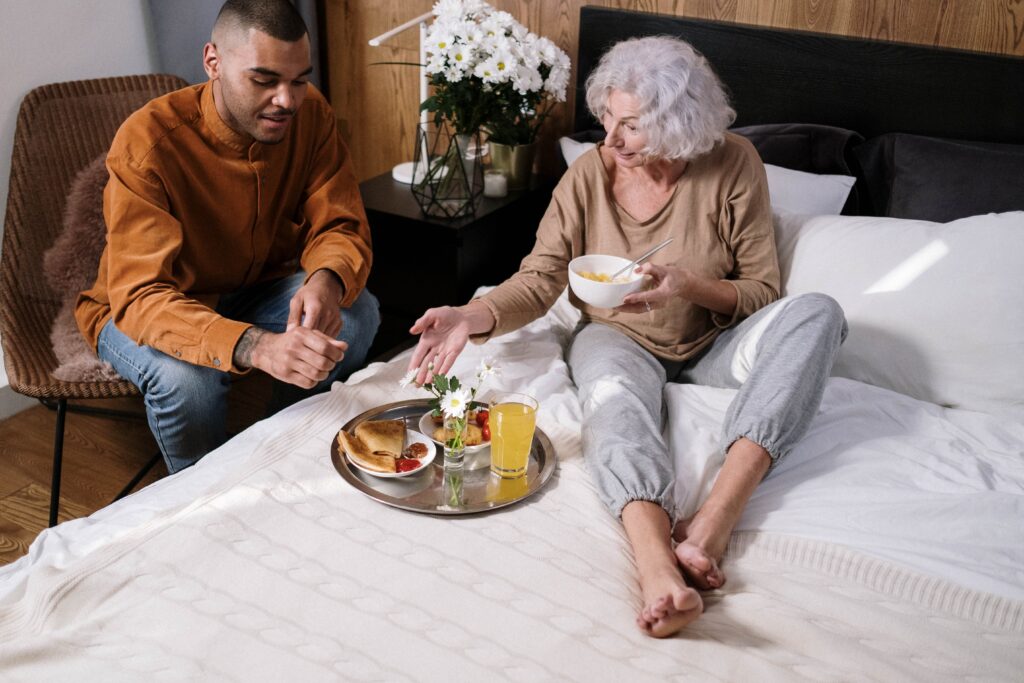How to Stop Being Codependent

Codependency is something that is mentioned often but rarely do you have examples of how to break this type of relationship within yourself and with the other person you are dealing with. A codependent relationship can be developed with anyone, not just your significant other.
Oftentimes, it starts with the example of your parents when you are young. Maybe your parents were in a codependent relationship, maybe your mother or father roped you into a codependent relationship with them, or maybe the way they acted prompted you to seek out codependent relationships when you were older.
Although it may seem impossible, you can unlearn what you have been thought and deprogram the patterns that have been programmed into you. Yes, you can stop being codependent and seeking out codependent relationships but we need to learn what codependency is first, and then lay out some things you can do to start breaking the patterns.
This article is for information and educational purposes only. It is not meant to diagnose or treat anything. If you need any additional help, information, or intervention please seek a mental health professional before doing anything.
Now, let’s look at what codependency is.
Codependency

Codependency is often described in psychology as a relationship where one partner gives excessively, to the point where they feel completely responsible for the other person, while the other person only takes. The giver tends to fill up all of their time taking care of or doing things for the taker. The giver only thinks about pleasing the taker and may end up making excuses, trying to save, or covering up for the taker.
In looking out only for the taker, the giver, in turn, begins to lose their sense of self, replacing it with psychological and emotional enmeshment with the taker. If this doesn’t really ring a bell and you still don’t understand, try answering the following questions.
- Do you feel like you’re walking on eggshells to avoid conflict?
- Do you feel the need to ask permission or check in with the other person to be able to do simple tasks?
- Do you apologize even if you’ve done nothing wrong?
- Do you often feel sorry for the other person despite them hurting you?
- Have you tried to “save” the other person to only have them fall into the same thing again?
- Do you do anything and everything for this other person even though it feels wrong to you?
- Do you put this person on a pedestal?
- Do you need validation from others to make you feel good and give you a sense of self?
- Do you struggle to find time for yourself?
- Do you feel like you have lost your sense of self? Do you know who you are and what you want?
To be in a codependent relationship, it is not necessary to say yes to all, and there may be a few things that are not on the list above. But, according to VeryWell Mind, if you respond with a yes to a majority of these, you might be in a codependent relationship. And, you might be the giver.
Another aspect of codependent relationships is that the taker often uses the unbalanced power dynamic to abuse the giver. Some types of abuse that the taker might incur are gaslighting, breadcrumbing, ghosting, financial abuse, emotional abuse, domestic violence, etc. So it is this cycle of overgiving and overtaking that eventually runs the relationship, and at least one person, to the ground.
It is hard to break out of codependent relationships and states of mind, but it is not impossible. If you are in a codependent relationship, don’t fret because there are a few things you can start doing to break that cycle within yourself, your way of thinking, and finally be free.
1. Become aware

The first thing you will need to do is to become aware that you are in a codependent relationship. Also, become aware of the patterns and cycles you are creating and/or contributing to. If you are not sure or can’t seem to find them for yourself, we suggest you seek a mental health professional that can guide you.
2. Look at your needs, likes, and wants
What are your needs? It is normal in relationships that some of our needs mix with the other person’s because they have a similar need. But, it is not true of all needs. Try to sift through the other person’s needs and see which ones you resonate with. What is it that you need to need a healthy life? Do you need to adhere to a certain diet or workout regimen that the other person has given you? Is that healthy for you?
In that same vein, do you want to do what the other person has told you to do? Do you even like what that other person likes or tells you that you like? Is all of that true or are you just doing it to please them?
3. Start small
After being under the influence of another for such a long time it will be difficult to break away from doing things the way you used to do them because you’ve programmed yourself that way. To change things, you’ll have to start changing the way you think and some of the things you do.
You can start by taking 5 minutes to yourself every day, instead of giving your all to the other person. You can start writing down things of what your likes, wants, and needs are. This way you will begin to rebuild your sense of self. You can also further do research on codependency and codependent relationships, and how these can be seen played out not only between individuals but also collectively.
4. What do other relationships look like?

Another topic you can research is how do other relationships look like. What do healthy relationships look like? What do unhealthy relationships look like? This will broaden your mind and give you the vocabulary to describe the things happening in your relationship.
5. Do something you like
Now that you are figuring out what you like and don’t like, go do something that you like every day. Even if it’s just 5 minutes every day at first, slowly expand it up to an hour. If you feel comfortable, go outside. Find a group you can spend time with, and outside of your house away from the other person. Give yourself some space.
6. Boundaries
As you rediscover yourself and look at what true relationships look like you will come across what disrespect looks like. It is time to put boundaries to keep the other person from stepping all over you as they have before.
You matter, your voice matters, and what you want matters. Don’t let the other person make you think otherwise. That’s how they are keeping you under their thumb. Put boundaries on your time, boundaries on how they speak to you, boundaries on a load of responsibility you agree to take, boundaries on how they treat you, put boundaries on your stuff and your personal space.
Remember, you need to tell and show others how you want to be treated. If you don’t do that they will treat you however they like.
7. Communication

No is a complete sentence. I’m sure you’ve heard that plenty of times. But, it’s true. If you don’t want to do something, say no. No explanations are needed, especially if the person you’re dealing with is a master manipulator. Giving them an explanation will only give them something to throw back at you somehow.
Also, learn to voice your thoughts and feelings. Sometimes people treat us the way they do because we aren’t brave enough to voice our true objections or feelings. If you find it difficult to speak, try writing down your reasons before expressing them to another person.
Slowly start standing up for yourself. If you feel your boundaries have been violated or someone is encroaching in your space, put a stop to it.
8. Let go of stories and attachment
Despite what they may have you think, you don’t owe anyone anything. Not even that person that keeps telling you that. You are not responsible for anyone’s life but your own. That other person, if they are an adult, they are supposed to be old enough to be able to take care of themselves and not rely so much on you.
It’s time to let go of the stories and attachments you have formulated around this relationship. They are unhealthy and cost you greatly every day.
Remember, if it harms your mental health it’s not worth it.
9. Go to therapy
We mentioned going to a mental health professional already but it really can help, especially if you feel like you’re in a dire situation or want to heal after the ordeal. Therapy can help you speed through knowledge and realizations that could take you years to learn on your own, so you can heal faster and get out of that relationship faster.
If you don’t like therapy, you could find a support group that’s geared to what you are going through.
10. Outside people

You can also reach out to people outside of your relationship to provide some clarity and time away to think. They can help you see things that you can’t see while being on the inside and can also provide you with a space to get yourself together.
This is not a comprehensive list of things that you can do to stop being codependent. If none of these things feel right for you, it’s alright. Just keep searching and you will find something that feels right. We do urge you to take baby steps to start breaking away from this relationship and get help if you can.
What do you think of this list? Is it helpful? Let us know in the comments. Don’t forget to check out our YouTube channel for more about psychology and relationships.
Sources:
Gilbert, B., & Young, A., MD. (2020, July 16). Do You Have a Codependent Personality? EverydayHealth.Com. https://www.everydayhealth.com/emotional-health/do-you-have-a-codependent-personality.aspx
Glover, E. (2020, July 15). Understanding Gaslighting and 7 Other Toxic, Borderline-Abusive Relationship Habits. Sheknows. https://www.sheknows.com/health-and-wellness/articles/1127311/gaslighting/
Gould, W. R. (2020, December 8). What Is Codependency? Verywell Mind. https://www.verywellmind.com/what-is-codependency-5072124#:%7E:text=%E2%80%9CCodependency%20is%20a%20circular%20relationship,otherwise%20known%20as%20’the%20taker.
Raypole, C. (2021, June 10). What Are the Signs of Codependency? Psych Central. https://psychcentral.com/lib/symptoms-signs-of-codependency



Responses